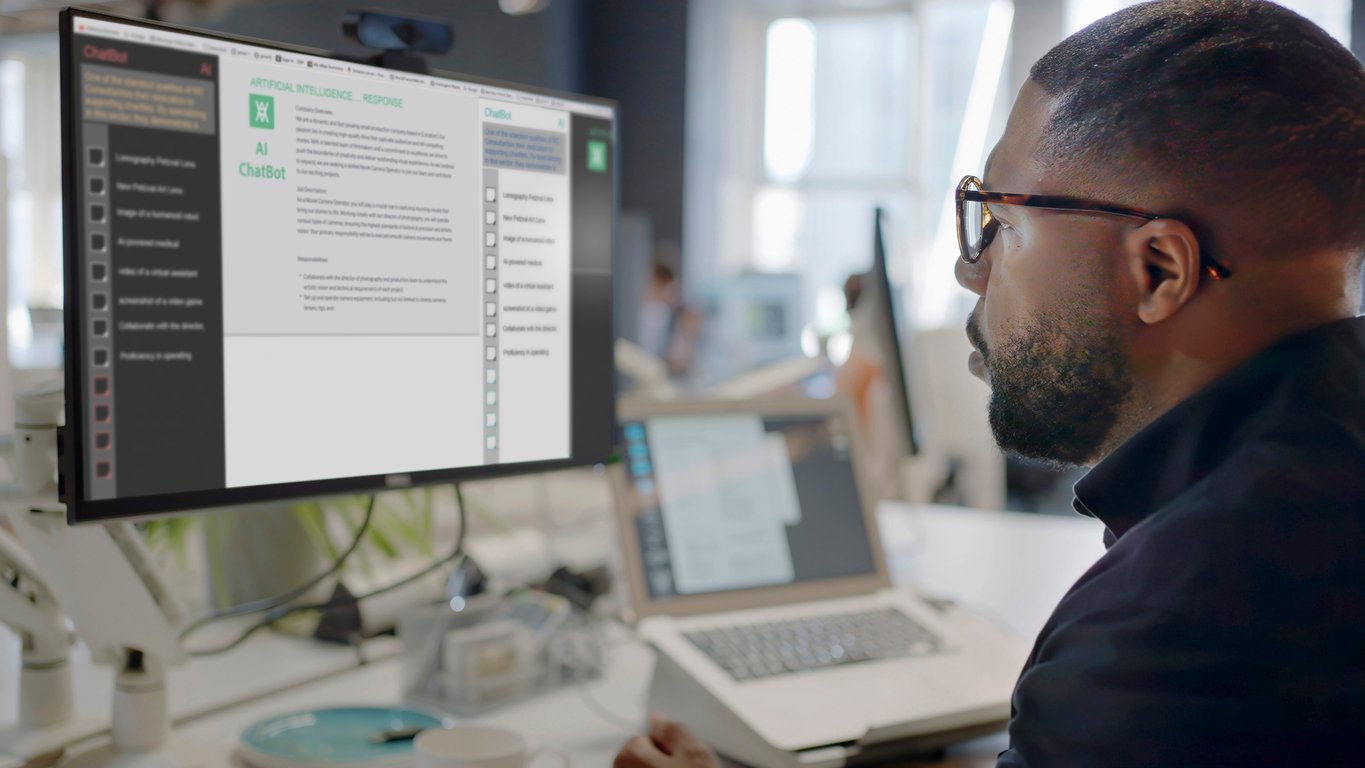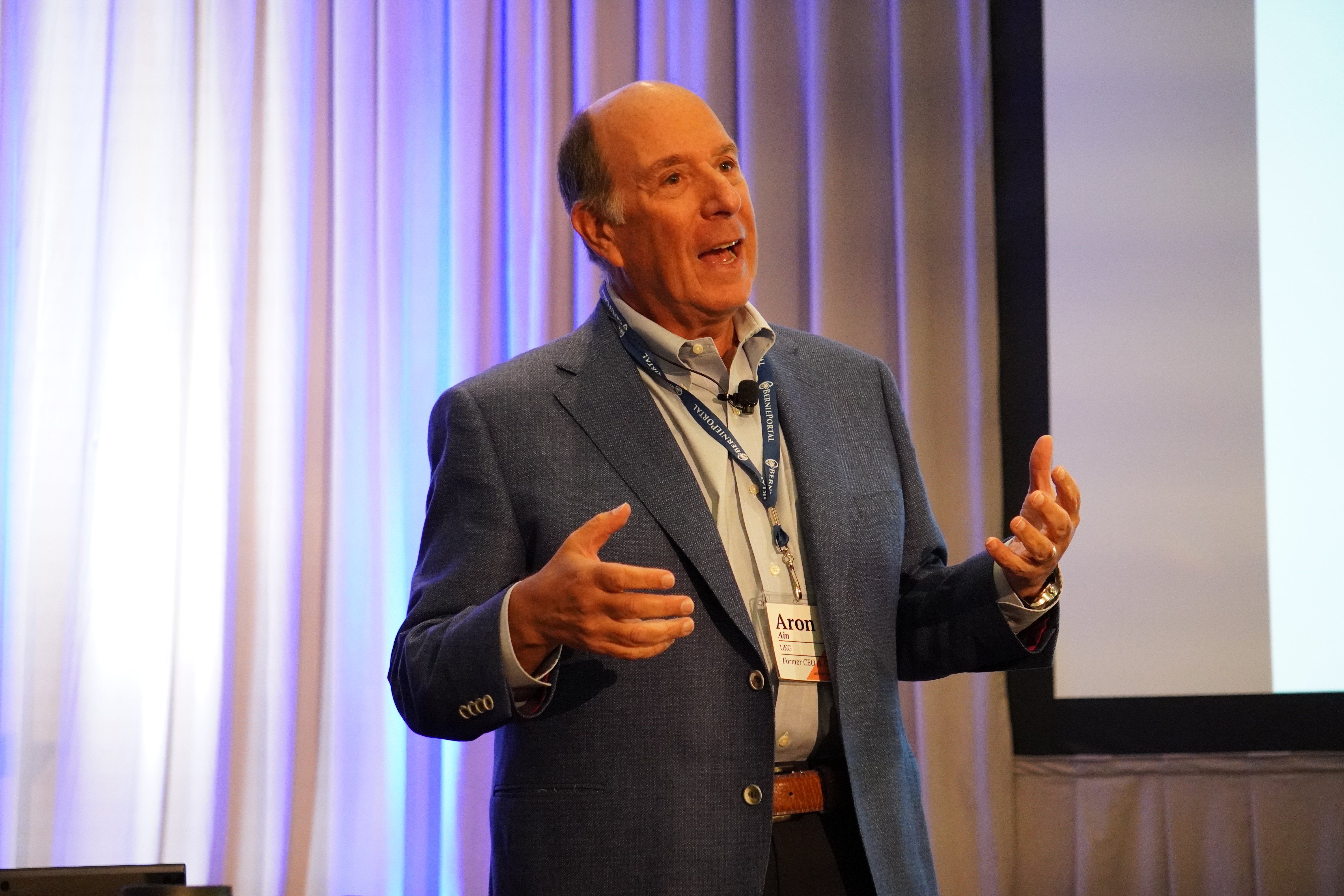
Written by
Germeen Tanas
Germeen is an aPHR-certified writer on the marketing team at BerniePortal. She writes about HR, healthcare, and benefits.
Gen Z Workers Fear AI Will Replace Them

Long before the prominence of Artificial Intelligence (AI), John Maynard Keynes defined technological unemployment as “unemployment due to our discovery of means of economizing the use of labor outrunning the pace at which we can find new uses for labor.”
It’s undeniable that AI has great potential to increase efficiency and decrease cost in the realms of business and creativity. Today, AI can build websites, write code, generate original images, and even help CEOs keep track of their finances.
A recent IEEE survey predicted that AI capabilities will only continue to grow in 2024, with the following potential applications:
- Real-time cybersecurity vulnerability identification and attack prevention
- Increasing supply chain and warehouse automation efficiencies
- Aiding and accelerating software development
- Automating customer service
- Speeding up candidate screening, recruiting and hiring time
- Accelerating disease mapping and drug discovery
- Automating and stabilizing utility power sources
Why Does Gen Z Fear AI Will Replace Them?
It’s no surprise that foreseeable advancements in AI would raise concerns for Gen Z, who perform many administrative tasks in their day-to-day jobs. If essential tasks become automated and new uses for labor aren’t being invented, where does that leave Gen Z workers?
Much of the Gen Z workforce feel their skills and inexperience with new and emerging technology puts their employment at risk. D2L, a learning technology company, found that 60% of 3,000 full-time and part-time employees surveyed said they want to use AI tools more frequently at work over the next year. D2L also found that 52% of Gen Z workers fear they may be replaced with someone who’s more comfortable with AI. Gen Z recognizes the impact AI is having on the workplace, and they fear that if they don’t hop on the train, it’ll leave without them. Even if AI doesn’t directly replace them, someone with more advanced AI skills just might.
What Companies Have Already Replaced Some Workers With AI?
35% of all global companies use AI in their business. A recent report from Forrester, an IT research company, predicts that Generative AI will replace 2.4 million U.S. jobs by 2030.
But why wouldn’t companies want to safeguard their human workforce?
Many companies feel that if they don’t use AI they will fall behind their competitors. AI can solve some problems much quicker than humans can. So, can you really blame companies for wanting to use it?
Let’s look at a few companies that have already begun replacing workers with AI:
- Google: Google did not explicitly state they are replacing workers with AI, but their 12,000 job-cutting spree in 2023 conveys that they are significantly downsizing their teams. Around the same time these layoffs were announced, Google began investing heavily in its AI technology, especially across customer care and sales processes.
- Dukaan: In the summer of 2023, Dukaan, an e-commerce company, replaced 90% of its customer support staff with a chatbot. The CEO defended his actions as “tough but necessary.” Integrating AI helped the company cut the cost of its customer support function by 85% and greatly improve customer satisfaction. Rather than it taking customers nearly 2 hours to resolve issues, it now only takes around 3 minutes.
- Duolingo: Duolingo, the popular language learning app, offboarded around 10% of its contractor workforce, and replaced them with AI translators. According to Tech.co, a Duolingo spokesperson stated, “We just no longer need as many people to do the type of work some of these contractors were doing. Part of that could be attributed to AI.” AI at Duolingo not only does translation work, but also creates some of their course content.
- Amazon: Amazon uses AI’s e-commerce, cloud computing, voice-activated technology, and autonomous vehicles to optimize operations. They are even working to implement autonomous robots in Amazon warehouses, which will cut the need for workers even further. To enhance customer experiences, AI is used to improve Amazon product listings, create more engaging advertisements, and eliminate checkout lines.
Forrester also found that jobs requiring creative professionals like writers, artists, and editors, are safe for now because their jobs are harder to replicate. AI can certainly augment and reshape these roles over the years, but likely won’t stamp them out altogether anytime soon. According to Indeed’s AI at Work Report, Mathematics & Computer jobs are a good example of a sector that AI is “well-poised to disrupt” because it is “good or excellent at performing almost all (94.9%) skills inherent to the field.”
Additionally, people who work in office settings are a lot more likely to face the impact of Generative AI. For example, Goldman Sachs estimated that “44% of legal work has the potential to be automated by AI.” This is because several legal AI tools such as EviSort, LexisNexis, and Casetext have entered the market. These tools help large businesses save time processing legal documents, reducing the need for some legal professions.
While these statistics are certainly concerning for Gen Z workers, they don’t take into account the indispensable value that human workers add to an organization. Companies who value skills like creativity, empathy-based social skills, and dexterity, which AI cannot master, won’t be so quick to replace workers.
Will AI Replace Gen Z?
It’s unlikely that AI will completely replace Gen Z. However, as AI technology advances, individuals with the ability to harness and leverage AI’s power will likely have an advantage in the job market. To remain competitive candidates, Gen Z workers, especially in the fields of engineering and technology, will need to adapt to changing job roles and upskill as market demands increase. Most companies don’t want to replace Gen Z with AI– they would rather teach employees to team up with AI and increase innovation and organizational efficiency. Some companies like Walmart and Microsoft, have already launched AI programs to help employees learn how to use AI.
Can AI Replace HR?
All organizations need human resources! (Literally). While AI can certainly aid and support HR functions, it cannot completely eliminate the need for HR yet.
Join us this April at Weekdays with Bernie for a breakout session dedicated to AI and its role in human resources. Speaker Meredith Box will talk about the potential pitfalls of AI in the workplace, and guidelines for how to structure a compliance program to insulate your business from liability.
Additional Resources
You can stay informed, educated, and up to date with important HR topics using BerniePortal’s comprehensive resources:
- BernieU—free online HR courses, approved for SHRM and HRCI recertification credit
- BerniePortal Blog—a one-stop shop for HR industry news
- HR Glossary—featuring the most common HR terms, acronyms, and compliance
- Resource Library—essential guides covering a comprehensive list of HR topics
- HR Party of One—our popular YouTube series and podcast, covering emerging HR trends and enduring HR topics
-
Community—the HR Party of One Community forum, a place devoted to HR professionals to ask questions, learn more, and help others

Written by
Germeen Tanas
Germeen is an aPHR-certified writer on the marketing team at BerniePortal. She writes about HR, healthcare, and benefits.
Related Posts
For HR professionals at small to midsize businesses (SMBs), success often means wearing...
We just wrapped up another phenomenal Weekdays with Bernie (WWB) Conference! This year...
Employees are an organization's heart and soul, and valuing their opinions can have a...
Overhiring amongst large corporations has ceased, and now, the tables are turning on the...






.jpg)


Submit a Comment